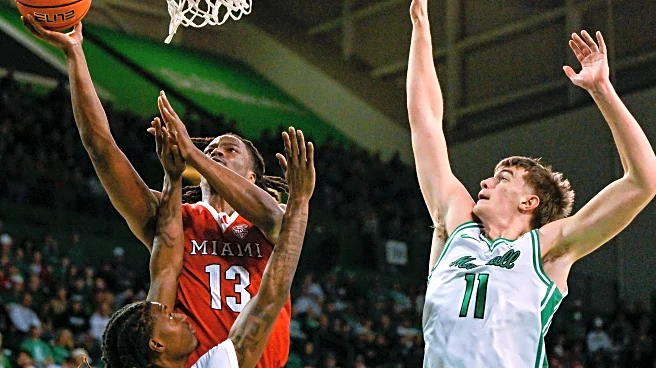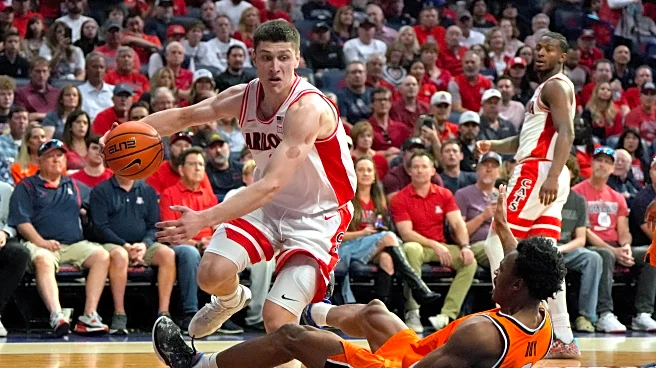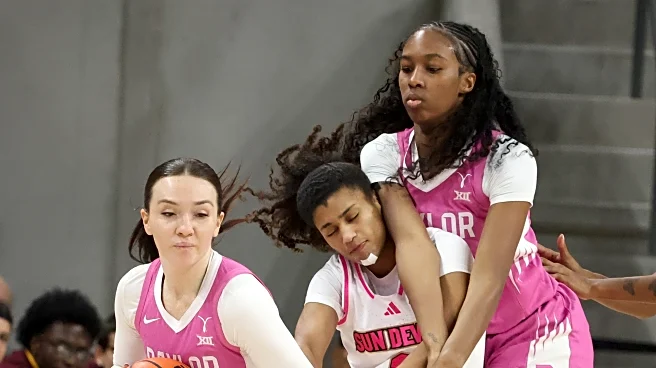What's Happening?
A TikTok user, @haleyfernandes__, shared a humorous moment from a recent job interview where she was asked to name a person she admires but has never met. Her unexpected answer was Tana Mongeau, a social
media personality and reality TV star, which surprised viewers and sparked amusement on social media. The TikTok video, posted on June 25, quickly went viral, garnering over 777,000 views and more than 110,000 likes. The post was humorously captioned, 'I’m incapable of lying.' Tana Mongeau is known for her unfiltered storytelling and online presence, having gained fame through YouTube in the mid-2010s. She later starred in her own MTV reality show and made headlines with a high-profile wedding to fellow influencer Jake Paul.
Why It's Important?
The viral TikTok video highlights the influence of social media personalities like Tana Mongeau on younger generations. It underscores the shift in public admiration from traditional figures such as politicians and celebrities to internet influencers who resonate with audiences through relatable content. This trend reflects the growing impact of digital platforms in shaping public perceptions and cultural norms. As influencers continue to gain prominence, their ability to affect consumer behavior and societal values becomes increasingly significant, potentially influencing marketing strategies and media consumption patterns.
What's Next?
The viral nature of the TikTok video may lead to increased attention on Tana Mongeau and similar influencers, potentially boosting their visibility and engagement across social media platforms. Brands and marketers might leverage this trend by collaborating with influencers to reach target audiences more effectively. Additionally, the incident could spark discussions about the evolving criteria for public admiration and the role of social media in shaping these perceptions. As digital platforms continue to evolve, influencers may play a more central role in media and advertising landscapes.
Beyond the Headlines
The incident raises questions about the cultural impact of social media influencers and their role in shaping public discourse. It highlights the shift from traditional media figures to digital personalities who connect with audiences on a personal level. This change may influence how future generations perceive success and influence, potentially altering societal values and expectations. The growing prominence of influencers also poses ethical considerations regarding authenticity and the responsibility of public figures in influencing their followers.










